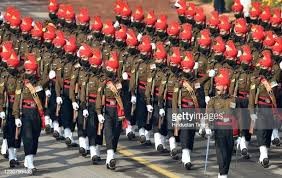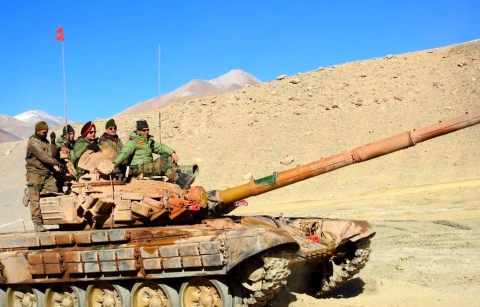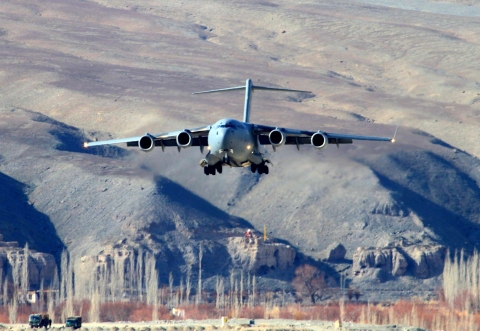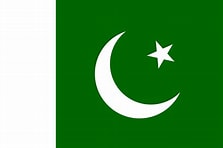In a recent interaction with the media, General Bipin Rawat, the CDS mentioned that the Indian Armed Forces are not an Expeditionary Force[1] and therefore could do with a reduced budget. In his words, “Military planners should not be pretending that India’s military was playing a global role. We are not Expeditionary Forces that have to deploy around the globe. We have to guard and fight only along our borders and of course, dominate the Indian Ocean Region (IOR).”[2]
The Statement can be read in the backdrop of budgetary cuts that might take place due to the Pandemic crisis. This is probably the first time that Indian Armed Forces have been contextualised with the Expeditionary Forces by a serving four-star General.
An ‘Expeditionary Force’ as per the Collins dictionary is a “group of soldiers who are sent to fight in a foreign country”. The term was most commonly used during the two World Wars and has been used till recently in the Iraq war. However, in today’s context, no country including the USA and Russia, who have far-reaching capabilities claim their Armed Forces to be Expeditionary Forces. In recent times, the US sent its troops to Afghanistan to fight the scourge of terrorism but never claimed that their Armed Forces were the Expeditionary Forces and being sent to distant lands to fight. They always maintained that it was primarily to ensure the security of mainland America and its people.
India today has been accepted by the international community as a regional power, with assertive military capabilities. However, the official Indian stance does not indicate or advocates the concept of being an Expeditionary Force, but definitely has a number of friends in the region with certain obligations towards them. , but is however keen to ensure the safety and security of its borders and the Extended Economic Zone (EEZ) in the Indian Ocean.
The main role of the Armed Forces is primarily to guard its frontiers, some still disputed, to prevent any inimical powers from its illegal or forceful occupation. Indian Army however, has a number of secondary roles that are equally important and may have to be undertaken. India along with its full complement of national resources has always come forward for the assistance of the regional friends at their request, including Sri Lanka, Maldives, Nepal, and Bhutan. The military hierarchy and planners know very well the implications of requests from these countries and the wherewithal required to execute such tasks such as Humanitarian Assistance and Disaster Management during the crisis in our friendly neighborhood. This strategic reach and operational capability to reach out to the friendly calls is a necessity in the existing milieu of complex interstate relationships. Therefore, to perceive that our responsibility is only to guard our borders and a certain extent of IOR would not encompass the full scope of the responsibility of our Armed Forces.
India in her 73 years of independence, is recognised by the community of nations as an emerging regional power with the capability to influence the Indo-Pacific region. In case the nation and the military were only looking at this limited charter, then is there a justification to procure the extremely sophisticated long haul strategic lift aircraft and helicopters with para-drop capability. The India Navy is seeking a blue water capability to be operating in areas of interest with enhanced endurance and reach. Let us, therefore not be carried away and be under the misnomer that if we are not an Expeditionary Force, we should not develop the capability to reach out to help our friendly countries in need and also be able to impose the nation’s will on inimical powers to be, in case a need ever arises.
Addressing a gathering at the Army Technology Seminar in Delhi in 2018, the CDS (then the COAS) had said, “There is a huge requirement of modernisation of our Armed Forces, in every field. The future wars will be fought in difficult terrains and circumstances and we have to be prepared for them”[3].
The Chinese have been known to be modernising their Armed Forces with capabilities beyond the domain of physical war. A book on Military Strategy ‘Warfare Beyond Bounds’ (Unrestricted Warfare is the English translation) written by two Chinese Air Force Colonels in 1999 conceptualises alternate methods of warfare and clearly gives an insight to their contemplation more than two decades ago. Their cyber warriors are capable of bringing a country to a standstill and nearly annihilating it in many ways without firing a single shot. The Indian Armed Forces need to guard against any such threats which are not in the realms of a traditional war. They are not naïve to be blinded by the superficial utterances and not be prepared for the worst-case scenario. A repeat of 1962, albeit in a totally different form, could be a reality in case the capability to deter war is not developed and fine-tuned.
While our borders may be secure physically, the heartland is prone to threat by the 4th and 5th dimensions of war. The famous Chinese military strategist Sun Tzu had said that the supreme art of war is to subdue the enemy without fighting. He also said, “To win one hundred victories in one hundred battles is not the acme of skill. To subdue the enemy without fighting is the acme of skill.” Chanakya too is quoted to have said that if the end could be achieved by non-military methods – including intrigue, duplicity, and fraud – he would not advocate an armed conflict. In case the origins of COVID-19 is linked to a trial experiment gone wrong on ‘Biological Agents’ in Chinese laboratories, it will be indicative of the likely future threats which the international community needs to guard against.
The imperative need to modernise and acquire modern state of the art equipment and armament is not linked to being an expeditionary force, but a necessity to build up the capacity and capability of fighting a hybrid war in a technologically advanced battlefield scenario. Even a defensive strategy has an offensive component that may need these capabilities to unhinge the adversary. We also have the island territories of Andaman and Lakshadweep to guard during peace and war, from the inimical powers. These islands also provide an opportunity with an extended reach in the IOR. Let the military not reduce its envisaged role and capabilities by virtue of budget cuts and unprecedented turbulent due to COVID -19, rather accept a delay in the procurement process.
The sharp budget cuts should not let be impacted upon the ISR capabilities and operations, as the military knows it extremely well that they need to pick up intelligence threads from the indicators which get thrown up from time to time. Drying up of sources and closing the eyes to these valuable indicators during peacetime will definitely result in huge losses with a heavy price to pay. The safety and security of a country with large disputed borders and inimical powers in the neighborhood cannot be compromised by budget cuts.
End-Notes
[1] Rajagopalan, Rajeswari Pillai. “India’s Defense Chief Opposes Aircraft Carrier Plans.” – The Diplomat. for The Diplomat, May 14, 2020. https://thediplomat.com/2020/05/indias-defense-chief-opposes-aircraft-carrier-plans/.
[2] Shukla, Ajai. “Bipin Rawat Defends Lower Spending, Says Military Plays Limited Role.” Business Standard. Business-Standard, May 10, 2020. https://www.business-standard.com/article/economy-policy/bipin-rawat-defends-lower-spending-says-military-plays-limited-role-120051100025_1.html.
[3] “Huge Requirement of Modernisation of Armed Forces: Bipin Rawat.” The Statesman, January 8, 2018. https://www.thestatesman.com/india/huge-requirement-of-modernisation-of-armed-forces-bipin-rawat-1502559886.html. Accessed on 21 May 2020
Views expressed is that of the author and does not convey the viewa of IIRF. This article was published on CLAWS website dated 25 May 2020
Author is an Indian Army Veteran to include an Advisory stint with Ministry of Sports for three years.
The author can be reached on bhallarajiv55@gmail.com














with the perfect subject. Thanks for a great valuable project. Great work! Keep up the ultra do the webjob! Have you considered promoting your blog? add it to SEO Directory right now 🙂 http://www.links.m106.com